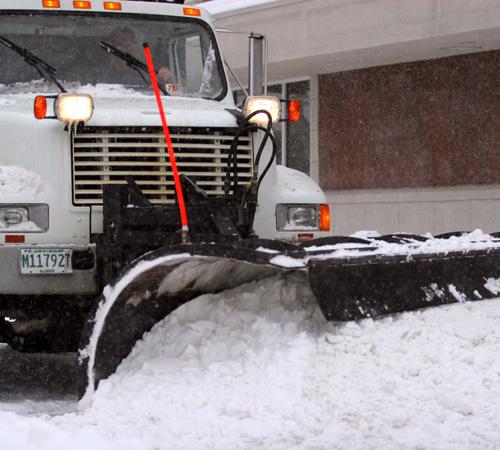Enforcement of snow ordinance to increase

Erica Magda
January 16, 2008
Sharpen your shovels and strap on those snowshoes. The Champaign Public Works Department might be running short on free snow removal passes for students.
The Council bills property owners in the Downtown Business District and University District who fail to remove snow within 48 hours of the announcement. Although most students survived Champaign’s winter break snows without a pricey work order greeting their return, the recently enforced ordinance might not be so lenient the next time around.
“We concentrate on areas that are one, the most important,” said Susan Salzman, Champaign’s property maintenance supervisor, who headed the enforcement body of the ordinance. “If students are here, there will be a lot more areas that we will enforce.”
The city issued work orders for 31 properties, 21 of which were downtown. Letters sent to all 800 property owners in downtown Champaign and on campus advertised the ordinance, including fraternities and sororities.
The work orders include a $100 administration fee and an additional variable charge depending on the size of the property. The collected money goes into a budget for nuisance abatement.
Get The Daily Illini in your inbox!
At-Large Champaign City Council member Tom Bruno said the ordinance’s selective enforcement is problematic.
“(The ordinance) is so horrible that if we really enforce it, we’ll end up not enforcing it,” Bruno said. “People are dreading the fact that we may impose this citywide. It would be a tremendous burden on them.”
Following a late December snowfall, Salzman focused dispensation of work orders on high-traffic areas or pathways that proved perilous to pedestrians.
“We could have done many more on campus but we concentrated in areas that we had complaints about,” Salzman said. “We probably could have written several hundred citations.”
Due to a fairly vacant campus, fraternities and sororities generally were spared from shovel duty.
“Sororities and fraternities have been better at keeping their property than most of the businesses, so I don’t think there will be any problems,” said Justin Randall, president of the Illinois Student Senate. The senate unanimously supported the ordinance following the lackluster snow removal, particularly on Green Street, in the weeks after last year’s snow days.
Community reactions to the enforced ordinance ranged from favored to furious. In addition to enhanced pedestrian mobility, clearer streets also streamlined accusations that the Council members were acting as “busybodies,” Salzman said.
Previously, Champaign-Urbana was the only Big Ten location without a snow ordinance. As Champaign officially incorporates the new ordinance into its public policy, Urbana is considering passing a similar one. Bruno does not believe that enacting the ordinance simply to fit in with the Big Ten legitimizes it.
“Big Ten communities are a strange batch of folks that have preciously little in common with each other,” Bruno said. One commonality among Big Ten communities is that most enforce the ordinances to a limited extent. “We all know wink-wink, nod-nod, we’re not going to enforce it.”
For better or worse, Champaign will finish the snowstorm season enforcing the ordinance.
“At the end of the snow season, we will review how it went and look at the positives and negatives, and present all the information to the City Council,” Salzman said.
Despite clearer streets, Bruno is convinced the ordinance is bad public policy.
“The government can hold a gun to people’s heads and things get more effective,” Bruno said. “I think it’s overkill.”






